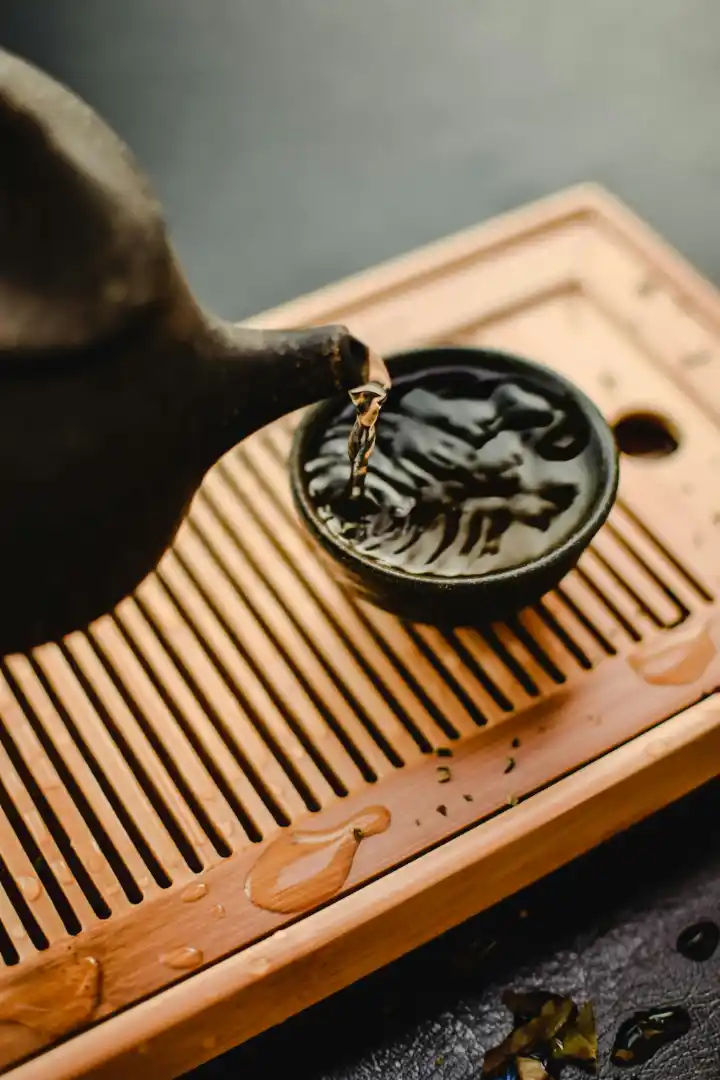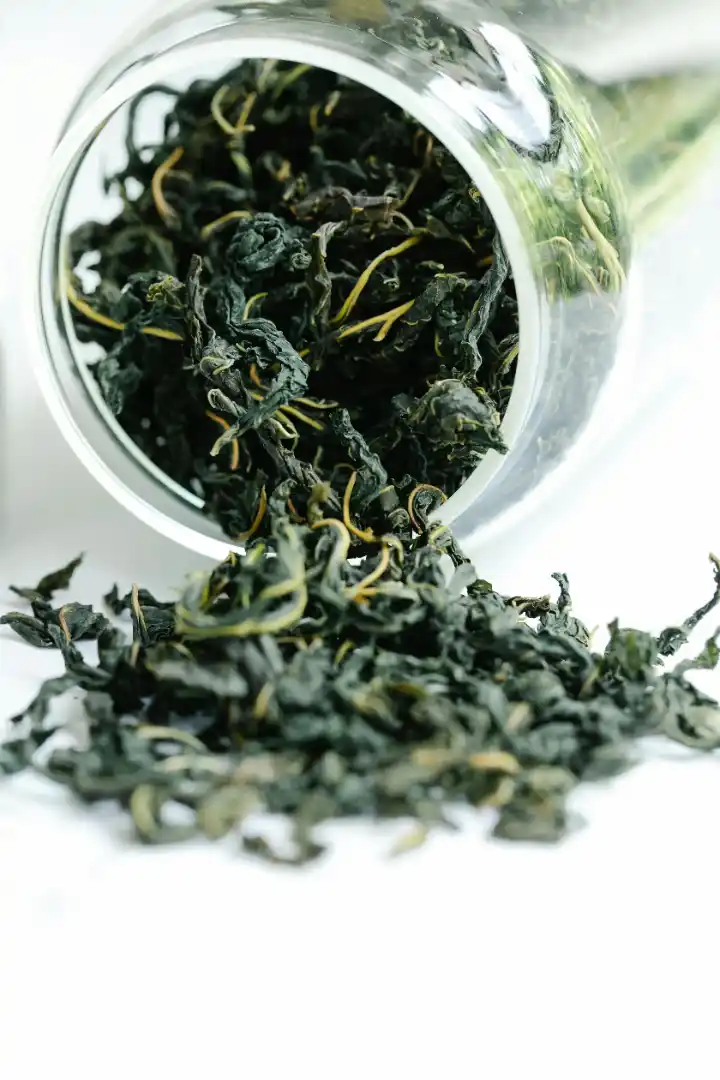What is Oolong Tea and What Benefits Does It Have?

What is Oolong Tea?
Oolong tea is a traditional Chinese tea made from the partially oxidized leaves of the Camellia sinensis plant, the same plant used to make green tea and black tea. The difference is in how the tea is processed.
The process of oxidation is what creates green, dark, or oolong teas.
Green tea is produced from fresh tea leaves that have not undergone oxidation, a chemical reaction that begins when the leaves are exposed to the air and which is responsible for the color and taste of different types of tea. Black tea is created when leaves are fully crushed to enhance oxidation, and oolong is created when leaves are wilted in the sun and slightly bruised to create partial oxidation.
Nutrients in Oolong Tea
Similar to black and green teas, oolong tea contains several vitamins, minerals, and helpful antioxidants.
A cup of brewed oolong tea contains small amounts of calcium, magnesium, and potassium. It also contains about 38 mg of caffeine. In comparison, a cup of green tea contains about 29mg of caffeine.
Key Antioxidants
Some of the main antioxidants in oolong tea, known as tea polyphenols, are theaflavins, thearubigins, and EGCG. These are responsible for many of its health benefits.
Oolong tea also contains L-theanine, an amino acid shown to have positive effects on relaxation and cognitive performance.
Oolong Tea and Diabetes Protection
In general, tea has been shown to help protect against diabetes and complications from diabetes, possibly by easing insulin resistance and decreasing inflammation, among other mechanisms.
Accordingly, studies report links between regular tea consumption, improved blood sugar management, and a lower risk of developing type 2 diabetes.
"The polyphenol antioxidants in oolong tea may help maintain normal blood sugar levels and decrease the risk of developing type 2 diabetes."
Heart Health Benefits
Regularly consuming tea antioxidants may also improve heart health. Several studies of regular tea drinkers show reduced blood pressure and cholesterol levels, as well as a reduced risk of heart disease.
In a large study, people who drank more than six cups of tea per day had a "significantly" lower rate of coronary heart disease than non-tea drinkers.
Oolong Tea Specifically
One study of more than 76,000 Japanese adults observed that men who drank 8 ounces (240 mL) or more of oolong tea per day had a 61% lower heart disease risk.
What's more, a study done in China reports that adults who drank 1 to 2 cups per day of either green or oolong tea "significantly" lowered their risk for a stroke.
Weight Loss and Metabolic Benefits
Oolong tea may aid in weight loss through several mechanisms. It contains caffeine and antioxidants that may increase metabolism and fat oxidation.

Various oolong tea varieties ranging from lightly oxidized (greenish) to heavily oxidized (darker)
Some studies suggest that oolong tea can help with weight management by:
- Increasing energy expenditure
- Enhancing fat burning
- Reducing body fat accumulation
- Supporting metabolic health
Brain Function and Mental Health
The combination of caffeine and L-theanine in oolong tea may improve brain function and mental alertness.
L-theanine is known to promote relaxation without drowsiness, while caffeine provides a mental boost. This combination may enhance cognitive performance and reduce stress.
Cancer Protection
Similar to green and black tea, oolong tea may have protective effects against cancer. The polyphenol antioxidants in tea have been studied for their potential anti-cancer properties.
Tooth and Bone Health
The antioxidants found in oolong tea may help keep your teeth and bones strong. One study showed that people who drank black, green, or oolong tea daily over a 10-year period had 2% higher overall bone mineral density.
A higher bone mineral density could lower the risk of fractures. Research has also linked tea consumption to better dental health, including decreased plaque and gingivitis.
Eczema Relief
Both black and green teas have been studied for their ability to help ease the symptoms of atopic dermatitis (eczema). One small study looked at oolong tea's ability to help manage eczema in 118 individuals with severe cases.
They were asked to drink 33 ounces (1 liter) of oolong tea per day, in addition to maintaining their normal treatment. After one month, there was "marked to moderate" improvement in their conditions.
Safety and Side Effects
Oolong tea has been consumed for centuries and is generally considered to be safe. That being said, it does contain caffeine.
When consumed in excess, caffeine can lead to anxiety, headaches, insomnia, irregular heartbeat, and in some cases, high blood pressure.
Recommended Intake
Both the United States Department of Agriculture (USDA) and the European Food Safety Authority (EFSA) consider daily intakes of 400 mg of caffeine as safe. This is equivalent to 48–80 ounces of oolong tea (1.4–2.4 liters) per day.
Given that the average cup is 8 ounces (240 mL), you could drink a total of 6–10 cups of oolong tea per day without consuming too much caffeine.
However, pregnant women are advised to stick to a maximum of 200 mg of caffeine, which is about 3–5 cups of oolong tea per day.
The Bottom Line
Oolong tea may not be as well known or as popular as green or black tea, but it has similar purported health benefits. These include benefits for heart, brain, bone, and dental health. In addition, oolong tea may help decrease your risk for developing type 2 diabetes, aid in protecting you from certain types of cancer, and offer supportive benefits if you're trying to lose weight.
Enjoyed this article?
Share it with friends or save it for later.